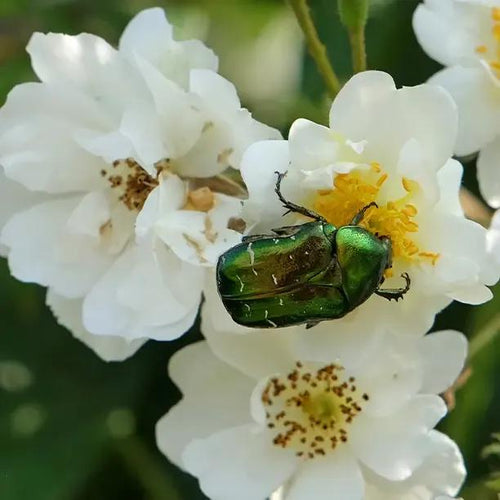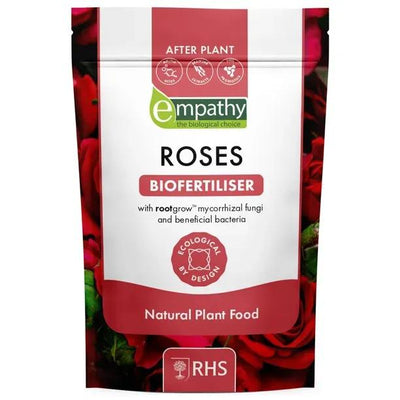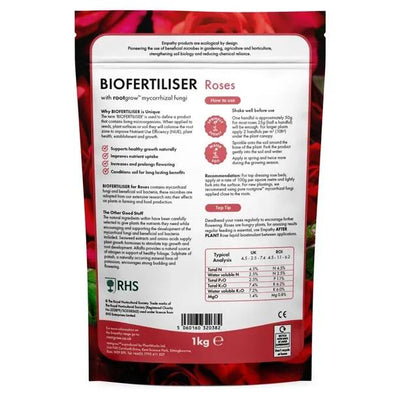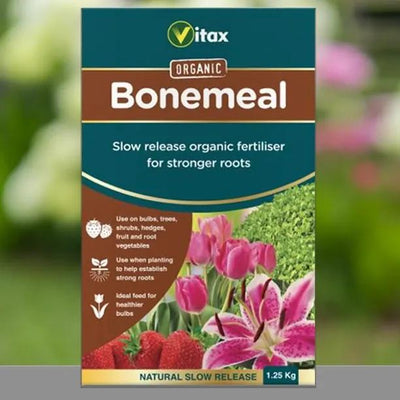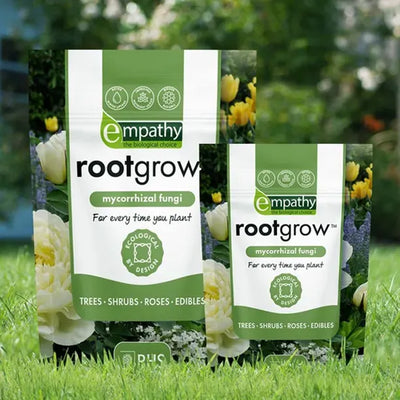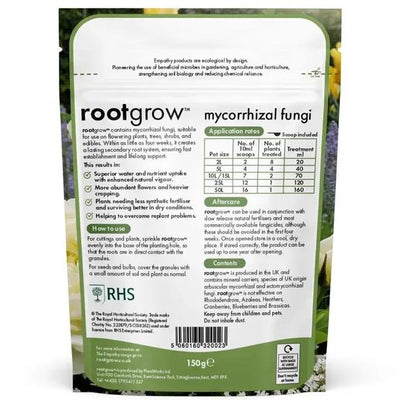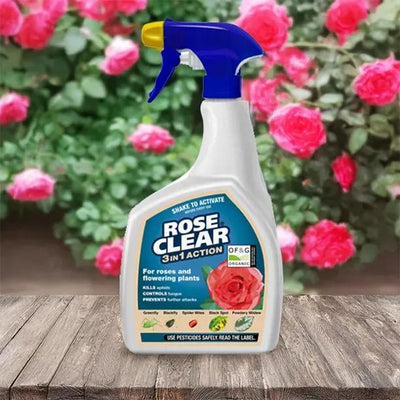Seagull Rose Bushes
'Seagull' will stop you in your tracks; it's the epitome of a traditional English garden in early summer. It's one of the best ramblers, and a huge one at that, growing to 8m. Browse the rest of our rambling roses here.
Its long, arching stems carry glossy, light green foliage and large sprays of flowers. Seagulls only flower once in a season, like most ramblers, but it's the star of the garden when it does. The large clusters of small white and semi-double flowers have bright yellow stamens and a lovely fragrance - imagine the sight of that many blooms! Once the flowers fade, you'll get a huge crop of orange rose hips into autumn.
Garden Design Ideas
Like other ramblers, it looks at its best scrambling over an old tree or building and it's ideal for hiding an eyesore like a workshop or garage. While it prefers full sun with fertile, humus-rich, soil, it'll also tolerate a fair amount of shade (not deep shade) and poor soil, although flowering won't be so profuse. As a Royal Horticultural Society Award of Garden Merit winner, you can be sure this rose has been trialled for its reliability and performance in real garden settings.
While Seagull only flowers once, it does so much more profusely than repeat-flowering roses. One idea is to extend the season's interest by adding a clematis or two into the mix - viticella types are the best. Try Etoile Violette, with purple petals surrounding a yellow centre of stamens and a mild fragrance; Abundance has deep pinky-red flowers and Polish Spirit has deep violet blooms with a light scent. All flower from May-September, when the orange hips will take over the display.
Rambling roses provide an excellent habitat for wildlife, so if you have the room, you couldn't choose a better plant to encourage more creatures into your garden. Bees, butterflies and other pollinators love the open flowers and the orange rose hips in autumn attract fruit-eating birds such as thrushes, blackbirds, redwings, fieldfares and waxwings. Some beetles and small mammals, including mice, squirrels, rabbits and deer also like to eat the hips, which are packed with vitamin C and will help them get through the winter.
Features
- Size: Very large and vigorous
- Colour: White with yellow stamens
- Shape (of flowers): Single or semi-double
- Flower type: Non-repeat flowering
- Scent: Medium
- Flowering: June
- Group: Rambler
- Height: Up to 8m
- Awards: RHS AGM
- Orange hips in autumn
- Will tolerate some shade and poor soil
- Excellent wildlife habitat
- Suitable for scrambling into a tree
History & Trivia
Rambler roses need to be watered well in their first couple of years but once they're established, their deep roots mean they can withstand drought - comforting to know with forecasts of drier summers expected for many parts of the country.








 Secure, One-Tap Checkout
Secure, One-Tap Checkout
 Hand Picked, Delivered to Your Door!
Hand Picked, Delivered to Your Door! 1 Year Bareroot Guarantee
1 Year Bareroot Guarantee